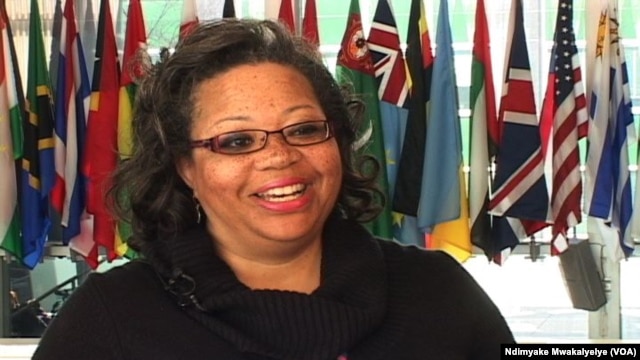| 03-15-2014, 08:26 PM |
Voice of America
 Voice of America Voice of America
Registered: 01-13-2014
Total Posts: 88
|
|
 South Sudan 'Tragedy' Cannot be Resolved on Battlefield: US Ambassador South Sudan 'Tragedy' Cannot be Resolved on Battlefield: US Ambassador
|
 U.S. Ambassador to South Sudan, Susan Page, speaks to John Tanza at the State Department on Thursday, March 13, 2014. TEXT SIZEandnbsp; Last updated on: March 14, 2014 2:27 PM WASHINGTONandnbsp;вҖ” The U.S. Ambassador to South Sudan, Susan Page, has called on the countryвҖҷs warring sides to end three months of bloodshed and resolve, through talks, what she called вҖңa real tragedy.вҖқ
"This is not a conflict that should or can be won through the use of force and weapons," Page told VOA in an interview conducted Thursday at the State Department in Washington.
Unrest in South Sudan has left thousands dead, destroyed livelihoods, wiped towns off the map and eradicated "the little infrastructure that had managed to be built after 2005," when a comprehensive peace agreement was signed that ended more than 20 years of civil war in once-unified Sudan, Page said.
The current crisis, which erupted in December, "has to be resolved through peaceful negotiations, where people can understand each other and make a way forward to bring peace back to South Sudan," Page said.
"We reiterate there can not be a solution militarily to this conflict that is first and foremost political and where demands of people need to be heard," she said.
Media crackdown 'no good for image of South Sudan'
Page said the government of South Sudan was shooting itself in the foot by cracking down on media rights recently.
"This does no good for the image of South Sudan," she said.
"It's important they uphold their own constitution, which does guarantee free press and free speech... It does not serve the people of South Sudan well, the more they close political speech and political free space," Page told VOA.
"It will not serve the government or the people of South Sudan well, who really just want to hear different views and different perspectives," she said.
As the troubles go into a fourth month, the United States has put on hold program support for South Sudan's security forces, the ambassador said.
"Given that the government itself has acknowledged that some 60-70 percent of the army that was, of the SPLA, has either defected to the rebels or has run from the army, it does not make a lot of sense to continue support for an army that is not yet whole and while recruitment of a new national army goes on, even in the light of the cessation of hostilities agreement, which suggests they should not be recruiting new members to the armed forces -- neither side," Page said.
The ambassador said that although the United States saw early warning signs of the crisis that erupted on December 15, the U.S. and international community could not forestall the crisis.andnbsp; She said it would have been up to the South Sudanese themselves to take steps to prevent it from happening -- just as it is up to them to end the fighting now.
"All we can do is offer advice, but people are not obliged to take advice, and ultimately the government has made decisions and the people that are fighting the government have made decisions that are out of our control,"andnbsp; she said.
"At the end of the day, the people of South Sudan have to want the kind of government, want the kind of society that they build themselves. If they don't want it, we cannot want it more than they do," Page said.
Listen to an edited version of the interview by clicking on the link below.
|
|
   
|

|

|

|
|
|